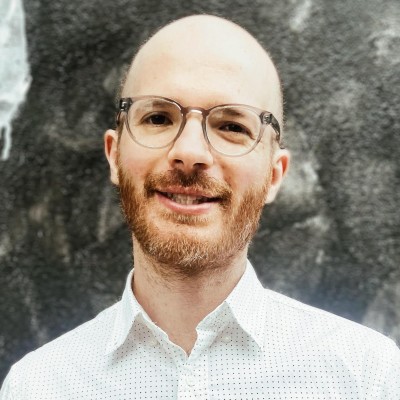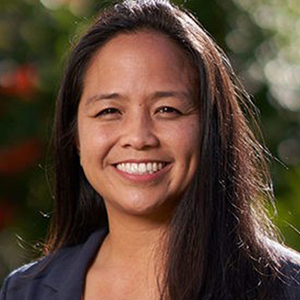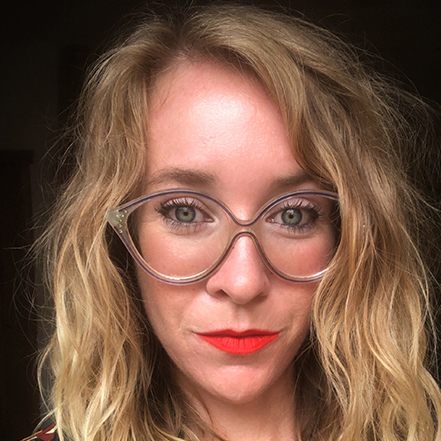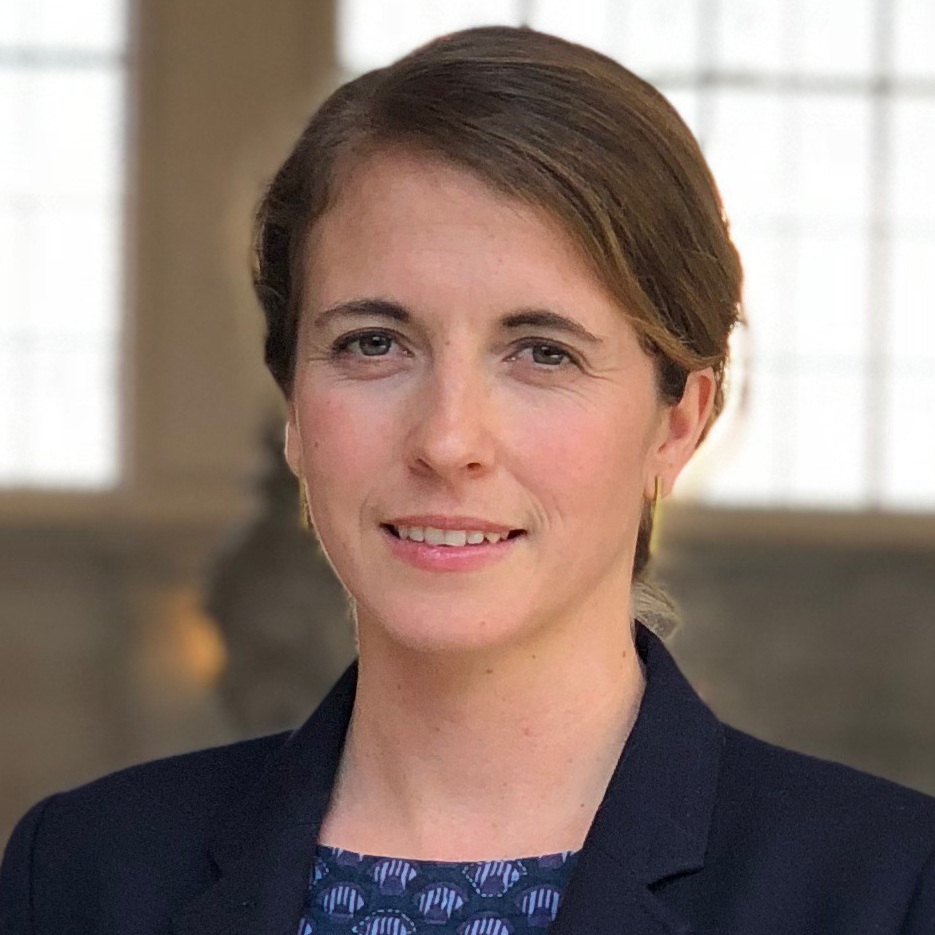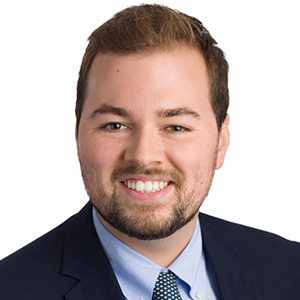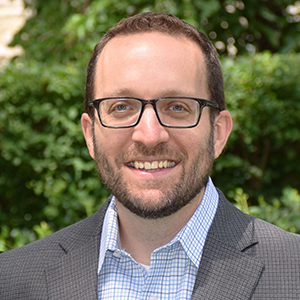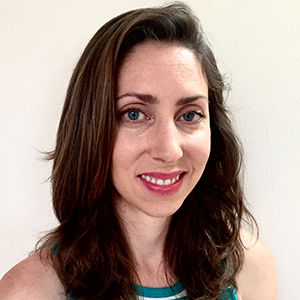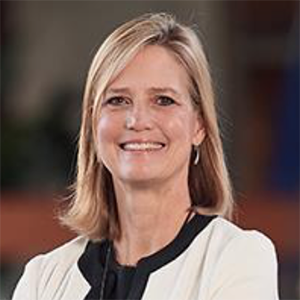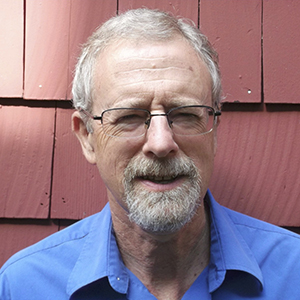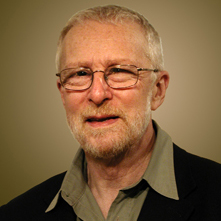
Meet the staff, advisors and affiliated scholars
of the Workplace Justice Lab@RU
WJL@RU's core staff
Janice Fine holds a Ph.D. from MIT in Political Science and is a Professor in the Department of Labor Studies and Employment Relations and Director of the workplace justice lab@RU within the School of Management and Labor Relations, Rutgers University where she writes and teaches about economic justice movements and organizations including unions, worker centers, community organizing groups and other forms of collective action in the U.S and cross-nationally; historical and contemporary debates within labor movements regarding immigration; labor standards enforcement; privatization and state capacity for contract oversight. Prior to joining the faculty at Rutgers in 2005, she worked as a labor, community and political organizer and trainer for over twenty years and continues to collaborate with unions, worker centers, immigrant rights organizations and community organizing groups.
Fine leads the Labor Standards Enforcement and Base-building projects. She is also a member of the graduate faculty in Political Science and the Department of Latino and Hispanic Caribbean Studies at Rutgers. Fine is the lead editor of the 2018 research volume No One Size Fits All: Worker Organization, Policy, and Movement in a New Economic Age, of the Labor and Employment Relations Association, author of the groundbreaking book, Worker Centers: Organizing Communities at the Edge of the Dream, and co-author with David Donnelly and Ellen Miller of Money and Politics, Financing Our Elections Democratically. With her colleague, the sociologist Hana Shepherd, Fine is currently working on a national research project funded by the Russell Sage Foundation on municipal labor standards enforcement regimes across four cities: San Francisco, Seattle, Los Angeles and New York.
She has authored and co-authored many articles in scholarly journals including Politics & Society, International Migration Review, Studies in American Political Development, International Labour Review, Regulation and Governance, Journal of Industrial Relations, Labor Studies Journal and the British Journal of Industrial Relations. She has written articles and editorials in the Boston Globe, Newark Star Ledger, Philadelphia Inquirer, the Nation, New Labor Forum, Working USA, Boston Review, and many others and has been interviewed on several National Public Radio and BBC programs. Fine is frequently quoted in the New York Times, Bloomberg and other national media outlets.
Jessica Galvez is the Program Coordinator at the workplace justice lab@RU. She is responsible for providing program and administrative support.
With a background as a dedicated educator, Jessica spent five transformative years in the classroom, focusing on embedding social justice principles into the curriculum and classwork. Her journey in education has honed her commitment to equity, inclusivity, and progressive change.
Kristin Warner brings more than two decades of experience in the labor movement as a successful organizer, director, trainer, legislative liaison, lead negotiator, and strategist. She is deeply committed to supporting workers in building power over the decisions that impact their lives—and to winning. Grounded in a long-held belief that collective action can both empower and disrupt, Kristin’s work is rooted in the understanding that organized workers are essential to achieving meaningful political and social change.
Kristin joins Build the Base, Grow the Movement after previously serving in senior staff roles with AFT-VT, AFSCME Council 93, Vermont State Employees Association, and SEIU-Nevada. In addition, she is a trainer with UC Berkeley’s Labor Center.
Eric Blanc researches new workplace organizing, digital labor activism, strikes, and working-class politics. His forthcoming book We Are the Union: How Worker-to-Worker Organizing is Revitalizing Labor and Winning Big (University of California Press, 2025) analyzes the growth of worker-to-worker organizing in the US since early 2020.
Author of the books Red State Revolt: The Teachers’ Strike Wave and Working-Class Politics (Verso 2019) and Revolutionary Social Democracy: Working-Class Politics Across the Russian Empire, 1882-1917 (Brill 2021), his research has appeared in journals such as Politics & Society, New Labor Forum, and Labor Studies Journal as well as publications such as The Nation, The Guardian, and Jacobin.
A longtime organizer in public education and labor movements, Blanc is a trainer in the Emergency Workplace Organizing Committee.
Aquilina Soriano-Versoza is the Executive Director of the Pilipino Worker Center, a resource and advocacy organization that empowers the Filipino community in Southern California to improve the quality of their lives. The Pilipino Worker’s Center works to protect domestic workers and caregivers from overtime, wage theft and human trafficking. Aquilina also serves as the current President of the Board of Directors of the National Domestic Workers Alliance. Aquilina has joined the workplace justice lab@RU leading the Build the Base program, supporting efforts to implement new distributed leadership and membership recruitment models.
Our Beyond the Bill Team
Jenn Round is the Director of Beyond the Bill (formerly the Labor Standards Enforcement Program) at the workplace justice lab @ RU. In this role, she works with agencies, lawmakers, worker organizations, and legal advocates across the U.S. to more effectively protect the rights of low-wage workers. Jenn facilitates partnership-building between enforcement staff and community and worker organizations, and provides hands-on technical assistance to agencies working to transform their enforcement practices to achieve widespread compliance. Through the creation of resources, curriculum, trainings, and studies, Jenn and the WJL@RU team lift up strategic enforcement and co-enforcement efforts from across the country while fostering communities of learning and practice that are actively working to improve enforcement outcomes for low-wage workers. She is also skilled at analyzing the enforcement powers embedded in labor standards laws and drafting legislation and administrative rules that facilitate the robust implementation of workplace rights.
Prior to joining WJL@RU, Jenn helped to launch and led enforcement at the Seattle Office of Labor Standards. There, she played an integral role in creating, evaluating, and revising Seattle’s enforcement systems and procedures. Jenn also carried out numerous policy projects at the agency and worked closely with community partners to ensure relationships were strong and synergetic. Having investigated many cases herself while overseeing the work of an ever-expanding enforcement team, she gained a firsthand understanding of the challenges facing enforcement agencies, including extremely high caseloads, pushback from politically powerful stakeholders, and uncertainty about when and how to best deploy enforcement powers.
Before her time in Seattle, Jenn worked for various legal aid organizations and academic institutions on access to justice and rule of law initiatives in Bethel, Alaska; Kabul, Afghanistan; Mae Sot, Thailand; Istanbul, Turkey; and Freetown, Sierra Leone. Jenn received her J.D. from the George Washington University Law School, her LL.M. from the University of Washington School of Law, and her B.A. in Africana Studies from New York University.
Ellen Love will manage the workplace justice lab@RU’s new project designed to identify and implement strategies that will assist small businesses in adopting fair and equitable employment practices. She also will work with workplace justice lab@RU leadership to expand the community of learning and practice and trainings for practitioners, academics, and other stakeholders.
Ellen has 10 years of hands-on experience implementing local labor laws with the San Francisco Office of Labor Standards Enforcement. In three roles with the office, Ellen facilitated outreach on new labor laws, led data collection and analysis, managed contracts with community groups, and conducted investigations. She has also assisted state and local governments with socially responsible public procurement at the Responsible Purchasing Network and supported the start-up of worker-owned businesses with Prospera in Oakland, California. Ellen holds a master’s degree in public policy from the Goldman School at the University of California, Berkeley and a BA from Brown University.
Jake Barnes is a doctoral candidate in the Rutgers School of Management and Labor Relations (SMLR). His research interests include labor standards compliance and enforcement, collective action, and comparative political economy. Currently, his research focuses on the enactment and enforcement of labor standards in states and cities across the U.S., including using data-driven approaches to inform strategic enforcement practices.
Prior to SMLR Jake was a research specialist at the Worker Institute at Cornell University, studying topics including the New York State arts and entertainment workforce and the growing alliances between unions and worker centers. Jake holds a master’s degree in industrial relations and human resources from Rutgers SMLR and a bachelor’s degree in industrial and labor relations from the Cornell ILR School, with minors in business and inequality studies.
Beyond the Bill Advisors and Affiliated Scholars
Daniel Galvin is a working on Strategic Enforcement initiatives. He holds a Ph.D. from Yale University and is currently an Associate Professor of Political Science and Faculty Fellow at the Institute for Policy Research at Northwestern University. His research examines the relationship between labor and employment policies, labor market outcomes, changing forms of worker organization, and the politics of workers’ rights. Daniel has published empirical analyses of minimum wage noncompliance at the state level, including a study demonstrating that stronger state enforcement capacities and the introduction of higher penalties for noncompliance – especially treble damages – significantly reduce the incidence of wage theft. He has also constructed new data on the proliferation of state-level employment policies over the last half-century and analyzed the role labor unions and other worker groups have played in in their enactment. His current book project, supported by the Russell Sage Foundation, examines the development of alt-labor groups and the changing politics of workers’ rights. Daniel’s other work focuses on political institutions, political organizations, and public policy in the United States. He was awarded the Emerging Scholar Award from the American Political Science Association’s Political Organizations and Parties section, the E. LeRoy Hall Award for Excellence in Teaching, the R. Barry Farrell Teaching Award, and was twice elected by the Northwestern student body to the Faculty Honor Roll.
Hana Shepherd is an associate professor of sociology at Rutgers University. In her work, she examines how social networks, social norms and culture, and organizational practices shape behavior, and thus facilitate or impede social change. Her current work focuses on realizing employment protections for low-wage workers and employee power in low-wage workplaces. With WJL@RU colleagues, she works on a series of projects on state and local enforcement of employment protections like minimum wage and paid sick leave standards. A book project with Janice Fine examines the political and organizational context for effective local enforcement; another project examines the origins and implications of regional variation in employment standards enforcement for racial inequality. In collaboration with retail worker organization United for Respect, she is conducting a digital field experiment examining how to create supportive online communities for retail workers. Other work focuses on how organizational practices shape networks in low-wage jobs and the implications for collective action at work. Her work has been funded by the National Institutes of Health, the National Science Foundation, the Robert Wood Johnson Foundation, the Russell Sage Foundation, and the Washington Center for Equitable Growth, among others. Her work appears in outlets such as the Proceedings of the National Academy of Sciences, Social Psychology Quarterly, Social Science Research, and Sociological Science.
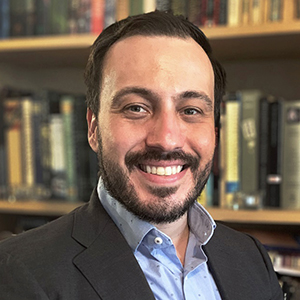
Andrew Wolf
Research Fellow
Beyond the Bill
Andrew Wolf is a labor sociologist who received his PhD at the University of Wisconsin-Madison. His research focuses on how the labor movement and governments are responding to the emerging gig economy phenomena, with a focus on the impacts for immigrant populations. Recently, he worked on a large survey study of the employment conditions faced by gig delivery workers in New York City which was published by the Cornell Worker Institute. This report helped inform the New York City Council in setting minimum employment standards for app-delivery workers. The findings of this report were featured in outlets including the New York Times, NPR, the Wall Street Journal, Bloomberg, and New York Magazine. Andrew brings over a decade of labor policy and research experience to the Workplace Justice Lab having previously worked at SEIU Local 32BJ and the Center On Wisconsin Strategies.
Nancy Leppink has over thirty years of experience in public service as a leader and strategist in labor, employment and human rights policy, law, administration, enforcement and compliance. She has held leadership positions at the state, national and international levels, including Acting Administrator of the United States Department of Labor Wage and Hour Division (WHD), Commissioner of the Minnesota Department of Labor and Industry and Chief of the Labor Administration, Labor Inspection and Occupational Safety and Health Branch of the International Labor Organization (ILO). Her areas of expertise include labor and employment standards, human rights, occupational safety and health, workforce development and worker injury benefit programs. She is highly skilled in the strategic implementation of policy, legislation and regulations and in addressing institutional and systemic equity and inclusion.
During her tenure as Acting Administrator of the Wage and Hour Division, she and her team re-imagined the Wage and Hour Division as a proactive, effective and efficient enforcement agency and rebuilt its capacity, re-engineered its compliance strategies, policies, procedures and tools and refocused its resources on low wage and vulnerable workers and leveling the playing field for compliant employers. She brought from concept to reality “strategic enforcement” and dramatically shifted the Division’s enforcement and compliance resources from reactive, complaint driven investigations to multifaceted, proactive, collaborative and strategic enforcement initiatives.
While at the ILO, building on the initiatives implemented during her tenure at the WHD and integrating the innovations of forward-leaning leaders of labor inspectorates around the world, she further evolved the strategic enforcement approach and designed a “strategic compliance” planning process to assistance national labor law enforcement agencies in understanding and implementing this evolved approach for achieving compliance with national and international labor standards.
Ms. Leppink has a strong commitment to the collaborative engagement of stakeholders who are positioned to influence compliance – government agencies, worker and employer organizations and private and civil society - and to building the necessary capacity within government to foster that collaboration. While Acting Wage and Hour Administrator she created a community outreach and resource planning (CORPS) position responsible for the engagement of stakeholders and the integration stakeholder collaboration within the agency’s enforcement strategies. The strategic compliance planning process she created while at the ILO also includes the development of communications, education and engagement interventions as critical components of enforcement agency’s compliance plans.
She has dynamically lead and managed diverse groups and organizations ranging from small teams to the 1,600+ employees of the Wage and Hour Division.
In 2018, Michael Felsen concluded a 39-year career enforcing federal worker protection laws as an attorney with the Solicitor’s Office of the U.S. Department of Labor. During the last eight years of his federal career, Michael served in the Senior Executive Service as New England Regional Solicitor, responsible for overseeing a 25-lawyer office that enforces wage, safety and health, pension, whistleblower, and other laws in the six New England states. During that period, he was an appointed member of the Secretary of Labor’s Performance Review Board (responsible for monitoring and advising regarding DOL’s senior executives’ performance reviews), and served on various Solicitor’s Office national committees, including its Strategic Management committee (where strategic priorities and measures were developed). Michael led a number of other strategic initiatives for the Department, including promoting enterprise-wide enforcement across DOL programs and innovating enhanced protections and remedies for workers – including undocumented workers -- who were the victims of employer violations of federal law.
Since leaving the Labor Department, Michael has consulted for the International Labor Organization on strategic enforcement, serves as a National Coalition on Occupational Safety and Health Advisor and co-chair of MassCOSH’s legal committee, and a member of the Massachusetts Attorney General’s Labor Advisory Council. He also supports strategic collaborations between state and federal labor agencies and worker centers in Boston and elsewhere, as a member of the Low Wage Worker Legal Network and an Access to Justice Fellow with Justice at Work in Boston, and has assisted in the drafting of state worker protection legislation. He writes frequently on labor and worker protection issues, particularly for The Hill and The Progressive, and is an active member of International Lawyers Assisting Workers. More about Michael at www.michaelfelsen.com.
Michael J. Piore is the David W. Skinner Professor of Political Economy, Emeritus, at MIT, where he continues to teach part-time. His current research is centered on work regulation, which is reflected in his recent book on Root-Cause Regulation: Protecting Work and Workers in the Twenty-First Century (with Andrew Schrank). He is also working on the impact of innovation policy on the structure of employment opportunities. In particular, he is looking at the potential of policies modeled on Silcom Valley to undermine employment in legacy industries. He is exploring this problem in the context of a larger study of innovation policy in Brazil at MIT’s Industrial Performance Center.
Professor Piore is a labor economist who has worked on a wide variety of labor problems including international migration, the impact of technological change, trade union organization and collective bargaining. The hallmark of his work is a concern with the way in which the economy is embedded in society and how its evolution is molded and directed by social processes. He is particularly interested in the insights this perspective offers relative to conventional economic theory, with its emphasis on individual decision-making in a competitive market. He is associated with a number of key concepts including the internal labor market, dual labor market analysis and the distinctions between flexible specialization and mass production, between interpretation and analysis in innovation, and between the U.S. and the Franco-Latin approach to work regulation and their impacts on labor market flexibility. These concepts are developed in a number of books and articles including: Internal Labor Markets and Manpower Adjustment (with Peter Doeringer); Dualism and Discontinuity in Industrial Society (with Suzanne Berger); Birds of Passage: Migrant Labor and Industrial Societies; The Second Industrial Divide(with Charles Sabel); Beyond Individualism; and Innovation – The Missing Dimension (with Richard Lester).
Awards and recognitions include a MacArthur Foundation Fellowship, an Honorary Doctorate (Docteur HONORIS CAUSA) from the Universite des Science et Technologies de Lille, a Lifetime Achievement Award from the Labor and Employment Relations Association (LERA) and an Honorary Doctorate (Doctorat Honoris Causa) in Industrial Relations from the Université Laval.
Professor Piore has served as president of the Society for the Advancement of Socio-Economics (SASE) and as an elected member of the executive committee of the American Economic Association. At MIT, he was the founding director of MIT-Mexico Program and has served as faculty co-chair of the Industrial Performance Center and as the associate Director of the Center for Technology Policy and Industrial Development.
He has worked in the course of his career with a variety of different government agencies, international organizations, and NGO’s including the U.S. Department of Labor, the International Labour Organization, the state of Massachusetts, the government of Puerto Rico, and the NAACP Legal Defense and Education Fund.




 Kristin Warner
Kristin Warner
